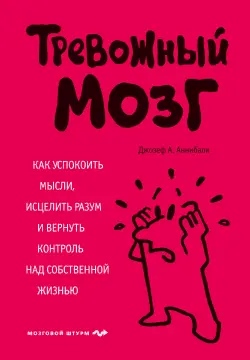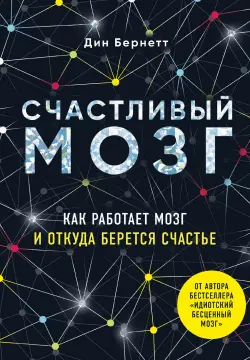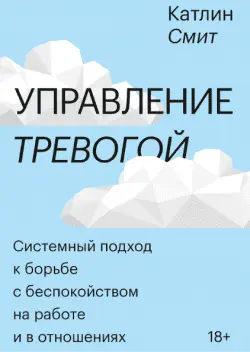Contents
- “Wow! A Guide to Mental Disorders for a Resident of a Big City, Anton Zainiev, Daria Varlamova
- “Freedom from anxiety. Deal with anxiety before it does for you.” Robert Leahy
- “Anxious brain. How to Calm Your Thoughts, Heal Your Mind, and Take Back Control of Your Life by Joseph A. Anibali
- “Don’t feed the monkey! How to get out of the vicious circle of worry and anxiety, Jennifer Shannon
- “Happy brain. How the brain works and where happiness comes from, Dean Burnett
- Planet of the nervous. How to Live in a World of Thriving Panic by Matt Haig
- “Anxiety management. A Systems Approach to Dealing with Anxiety at Work and in Relationships by Kathleen Smith
- “Inner peace. 101 Ways to Cope with Anxiety, Fear and Panic Attacks by Tanya Peterson
The change of the season, the increased workload, the new school year – all this is fertile ground for the exacerbation of mental disorders. We offer a selection of books that will help take care of yourself in the fall
“Wow! A Guide to Mental Disorders for a Resident of a Big City, Anton Zainiev, Daria Varlamova

According to WHO, one in eight people on earth lives with a mental disorder. The authors of the book, Anton Zainiev and Daria Varlamova, also faced clinical depression, rejection of this diagnosis in society, and a lack of intelligible information about mental illness. They rummaged through piles of scientific materials, interviewed experts and created a book unique for our country. In it, Anton and Daria talk in an accessible language about depression and other diseases: anxiety, bipolar, antisocial, obsessive-compulsive and borderline disorders, ADHD, Asperger’s syndrome and schizophrenia. The book received the Enlightener Award.
“Freedom from anxiety. Deal with anxiety before it does for you.” Robert Leahy

Aware means armed. Robert Leahy, Ph.D., professor of psychology at Yale University, has written an easy-to-follow guide to getting rid of anxiety. The author explains in detail where it comes from, talks about the main types of anxiety disorders, and, most importantly, talks about strategies and exercises with which these disorders can be overcome on their own or with the help of a therapist.
“Anxious brain. How to Calm Your Thoughts, Heal Your Mind, and Take Back Control of Your Life by Joseph A. Anibali

A handbook for any modern person who has fallen a lot of problems: insomnia, difficulties at work or school, problems in personal relationships, depression, anxiety, stress and terrible fatigue. For complete “happiness”, we also desperately blame ourselves, scolding for bad luck, laziness and lack of will. Dr. Annibali, a psychiatrist and psychotherapist with twenty years of experience, in his book removes this burden of guilt from our shoulders. It shows that the true cause of many life troubles is real malfunctions of the brain. This book will show you in what cases and how you can alleviate your condition on your own, and when it is better to consult a doctor.
From the book you will learn how to get rid of negative thoughts and stop blaming yourself for everything, how to build healthy relationships, what happens in the brain when a person experiences emotional trauma, how to rewire your anxious brain and why depression is a really serious problem.
“Don’t feed the monkey! How to get out of the vicious circle of worry and anxiety, Jennifer Shannon

Another psychotherapist with twenty years of experience is in a hurry to reassure you – anxiety does not define you as a person and is not a trait of your character. So, you can get rid of its symptoms. Fears and obsessions happen to everyone, but not everyone copes with them successfully. The author proposes to understand the mechanisms of our psyche and break the vicious circle of anxiety. If you understand how your brain works, then you will learn to recognize the first signs of neurosis, take action in time, and make your life easier.
“Happy brain. How the brain works and where happiness comes from, Dean Burnett

How to become happy? Neurologist and blogger Dean Burnett approached this issue without too much sentimentality and from a scientific point of view. Based on the results of neuroscience research, he explains what kind of signals enter the brain and make us feel joy, security and peace. The book pays a lot of attention to neural connections, hormones, attitudes formed in childhood that affect our attitude towards life. Burnett explains why some people can be happy in any circumstance, while others cannot be happy even if they are doing well. In this book, you are unlikely to find the answer to the main question, but you will definitely learn a lot about your brain in an exciting way.
Planet of the nervous. How to Live in a World of Thriving Panic by Matt Haig

The famous British author of teen novels Matt Haig knows firsthand about mental disorders – he himself was diagnosed with anxiety-depressive disorder and panic attacks. The writer decided to thoroughly study the problem of anxiety and share his own experience of the struggle for happiness. In the book, Haig talks about the causes of the emotional instability of modern man: from social inequality to eating disorders. The author gives advice on how to support yourself in an era of anxiety and what small habits will help you become more calm and balanced.
“Anxiety management. A Systems Approach to Dealing with Anxiety at Work and in Relationships by Kathleen Smith

A practical guide for those who are not going to put up with anxiety and want to change their lives – stop always suspecting a partner of treason and overprotecting parents, learn not to flinch from the boss’s messages. The author explains that anxiety is a natural mechanism that can be compared to a fire alarm. It can turn on when a toast just burnt in your pan, and this does not mean that you will immediately burn or suffocate from carbon monoxide. Your task is to learn how to use the “alarm” correctly and quickly turn it off when there is no reason to panic.
“Inner peace. 101 Ways to Cope with Anxiety, Fear and Panic Attacks by Tanya Peterson

The book is good at describing an impressive number of techniques from which you can choose those that are right for you. Here are recommendations and techniques from professionals and people who have already curbed anxiety-depressive disorder. All exercises are useful and effective, but some will appeal to you especially. Try to start with something simple and watch the changes in your emotional state, and then move on to more complex techniques. And no water – only capacious recommendations that can be applied here and now.










